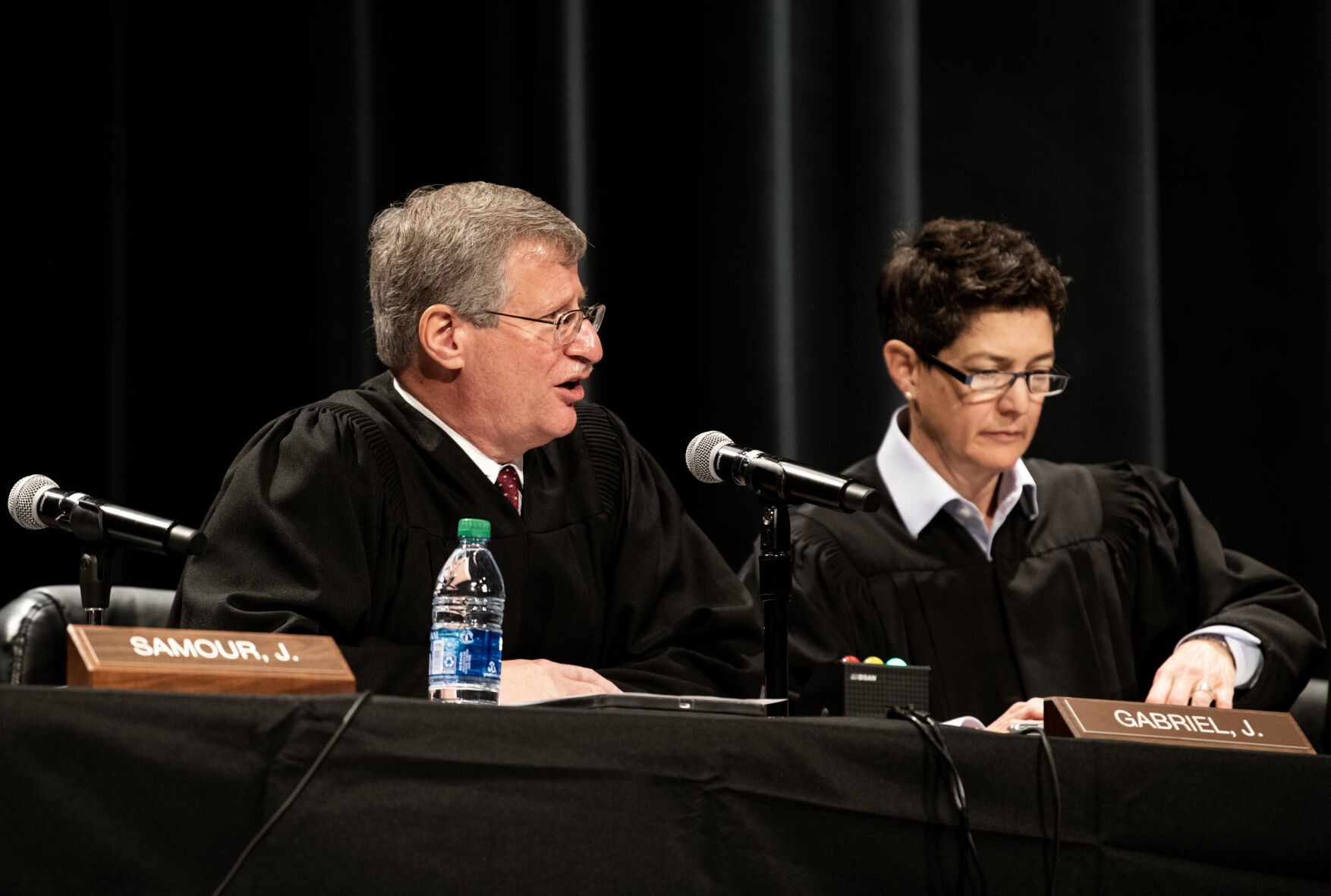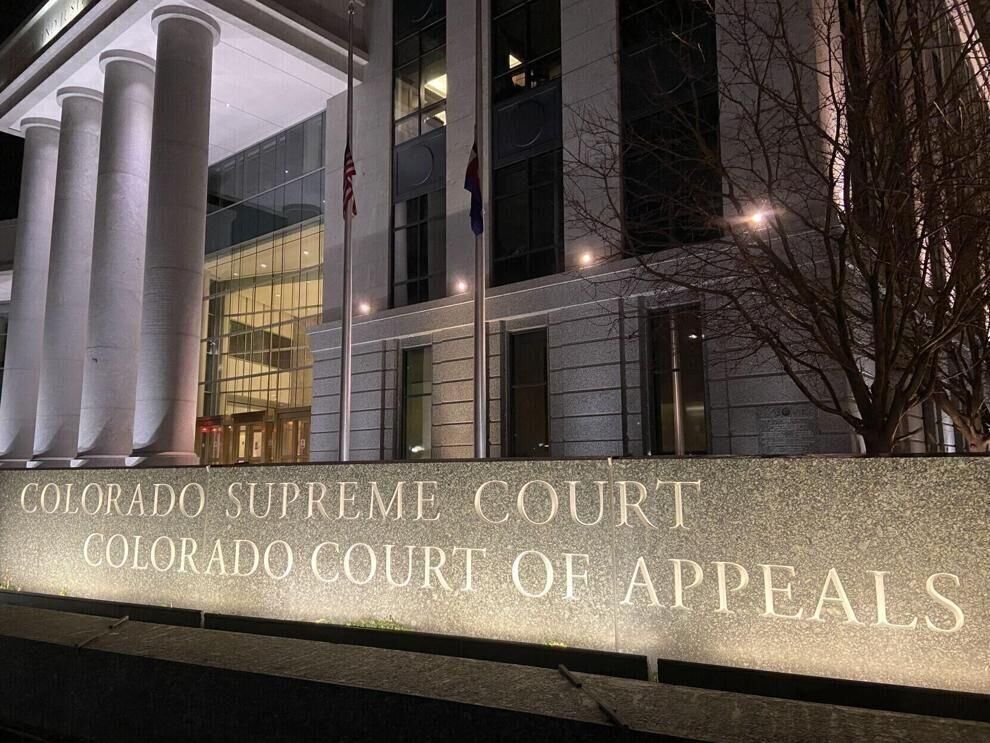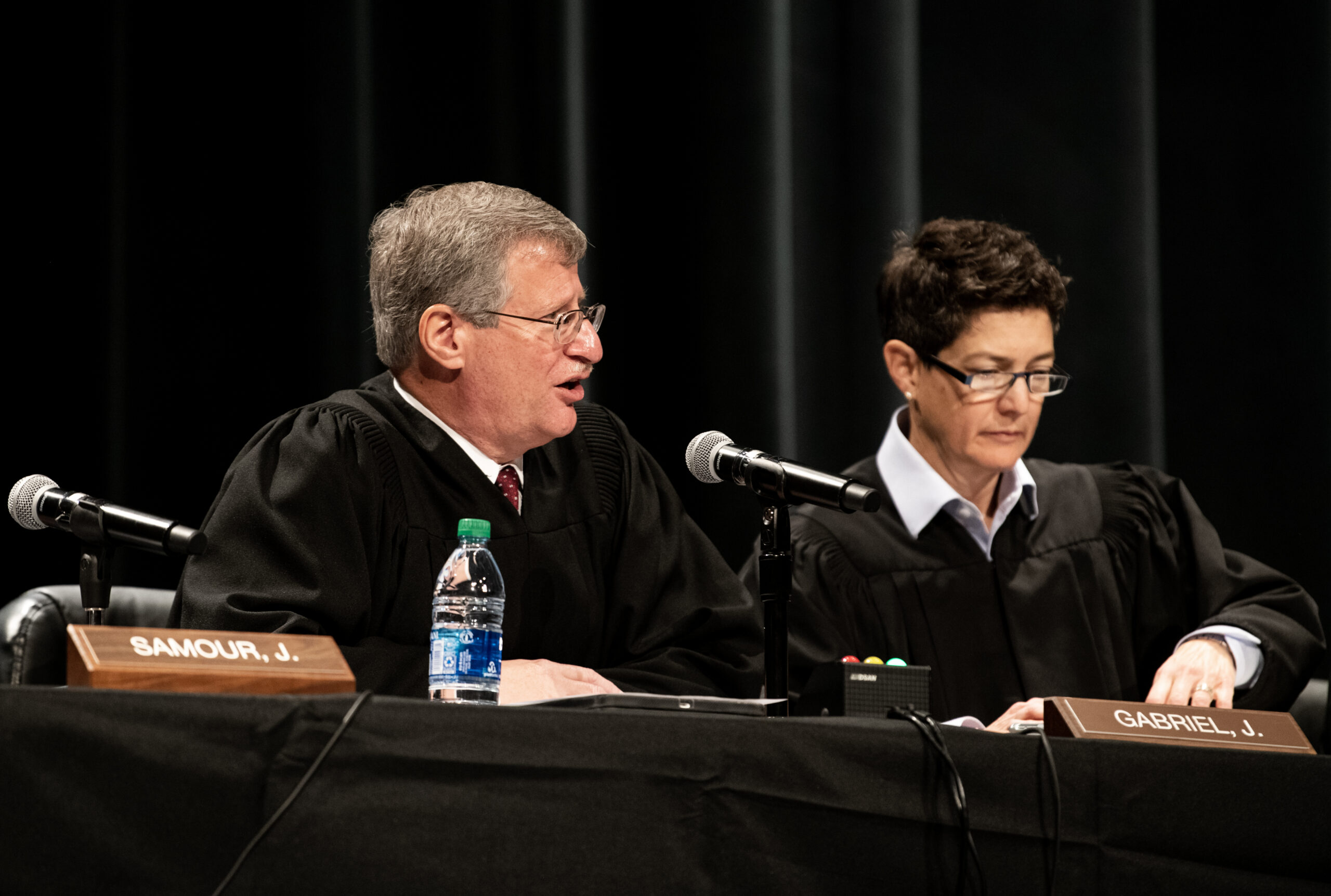Colorado justices skeptical of combined murder-drug trial in Arapahoe County

After an Arapahoe County jury convicted Joseph Wayne Washington of numerous charges related to a deadly shooting and drug possession, Washington argued there should have been separate trials for each type of offense, and that combining them was an error.
In Washington’s view, jurors were more likely to reject his self-defense argument and convict him of murder once they saw the prosecution paint him as a “large-scale drug dealer,” when, in reality, the shooting had no connection to the drugs.
At oral arguments on Wednesday, some members of the Colorado Supreme Court seemed to agree with him.
Evidence of Washington’s drug possession “would influence his credibility,” said Justice Richard L. Gabriel. “‘He’s a bad guy, so don’t believe his self-defense nonsense.’ Make me feel better about why that’s not a problem. Because that concerns me.”
In August 2017, Washington attended a barbecue at Cherry Creek State Park. Allegedly, another attendee, Jackson Chavez, got into an altercation with his girlfriend. When asked to leave, Chavez knocked a man to the ground and then came after Washington. Washington walked to his bag, got a gun and shot Chavez.
Washington then fled to a hotel with his girlfriend. When police arrested him, they found several types of illegal narcotics, including some that Washington left behind in his home and car. Prosecutors charged him with first-degree murder, numerous counts of drug possession, plus additional charges related to Washington’s post-arrest conduct.
He asserted he was acting in self-defense and that the drugs were not his.
The defense argued the drug charges should be tried separately, but District Court Judge Patricia Herron disagreed. She concluded they were “part and parcel” of the same incident. Herron specifically noted Washington gifted the person who booked his hotel room with cocaine as part of his escape after the murder.
Jurors acquitted Washington of certain charges and convicted him of the lesser offense of second-degree murder, along with the remaining drug counts. He received a 57-year sentence.
On appeal, Washington only challenged Herron’s decision not to sever the drug case from the murder case. Under the rules of procedure, two or more offenses can be joined for trial when they are “of the same or similar character” or are based on “acts or transactions connected together.”
A three-judge panel for the Court of Appeals concluded that even if joining the charges was a mistake, it did not require automatic reversal of Washington’s convictions. There was “overwhelming evidence” Washington did not kill Chavez in self-defense, and the fact jurors acquitted him of some offenses, while convicting him of others, showed their ability to consider the offenses separately, the panel reasoned.
Washington then appealed to the Supreme Court.

“The prosecution’s theory was never that Washington acquired and intended to distribute the drugs because of the homicide,” wrote public defender John Plimpton. It “was always that Washington possessed the drugs and intended to distribute them independently of the homicide and subsequent flight. In the prosecution’s view, Washington was a large-scale drug dealer who just so happened to shoot a man who attacked him and his friend in a park.”
Plimpton added that the jury’s split verdict was meaningless, as it could have indicated jurors compromised in order to reach unanimity on two unrelated sets of criminal conduct.
“Do you agree as a factual matter that drugs were not involved in the fight and the shooting?” Justice Melissa Hart asked the government.
Yes, responded Senior Assistant Attorney General William G. Kozeliski. However, he argued it was “difficult to imagine” a more connected series of events.
“Do the drugs belong to the girlfriend … or does it belong to the guy who just shot somebody and who’s trying to get out of town?” said Kozeliski. “So, the inference is: the drugs belong to him because he’s the one with motive to gather them and to help him get out of town.”
“You could picture the murder trial as nothing more than, ‘He came at me, I went and got a gun and I shot the guy,'” countered Gabriel.
Plimpton argued that under the Supreme Court’s own precedent, an error in joining the charges at trial would merit automatic reversal, given the potential harm to Washington’s self-defense claim from jurors hearing about his drug dealing. Gabriel was sympathetic to that idea.
“We’re, like, three steps removed from the murder,” he said.
The case is Washington v. People.













